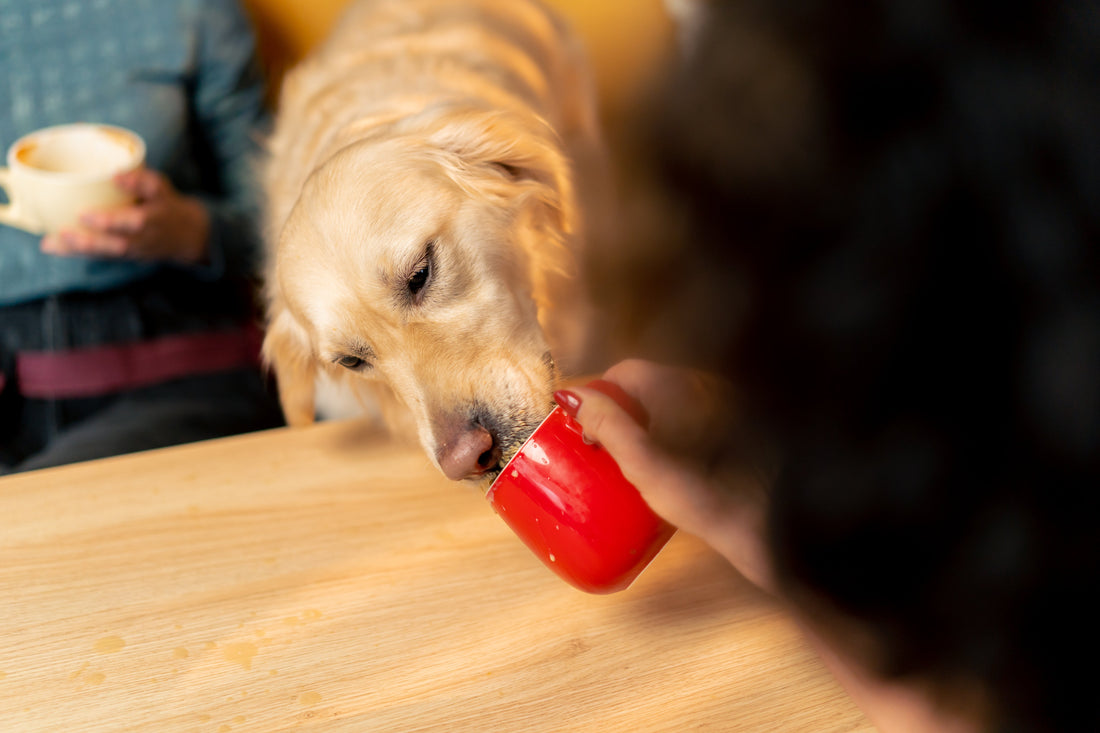Many pet owners love treating their furry friends to new and exciting snacks. But when it comes to human food, some treats can pose risks. One common question dog owners ask is, "Can dogs eat Jello?" While this colorful, wobbly treat is a favorite among people, its safety for dogs is questionable. In this guide, we’ll explore the ingredients of Jello, what experts say about feeding it to dogs, the potential risks involved, and safer alternatives for your pup.
What is Jello?
Jello is a soft, wobbly, and colorful dessert made primarily from gelatin. It is popular for its sweet taste and fun texture, making it a favorite treat among children and adults. Jello is often used in desserts, fruit salads, and even some creative culinary recipes.
The dessert comes in various flavors, such as strawberry, lime, orange, and cherry. It is typically sold in powdered or pre-made form, requiring water and refrigeration to set. While Jello may seem harmless, its ingredients can have different effects on humans and pets, which is why it’s essential to examine whether it is safe for dogs.
What is Jello Made Of?
Jello primarily consists of gelatin, but the store-bought versions contain additional ingredients that may not be suitable for dogs. Here’s a breakdown of the common components found in Jello:
- Gelatin: A protein derived from animal collagen, often found in bones, skin, and connective tissues. This ingredient itself is safe for dogs and even has some health benefits.
- Sugar: Most commercial Jello products contain high amounts of sugar, which can lead to obesity and diabetes in dogs.
- Artificial Sweeteners: Many sugar-free Jello products contain xylitol, a toxic ingredient that can cause severe health issues in dogs, including liver failure and hypoglycemia.
- Artificial Flavors & Colors: These additives enhance taste and appearance but may trigger allergies and digestive problems in pets.
- Preservatives: Chemical additives prolong shelf life but can cause stomach upset and other health complications in dogs.
Is Jello Safe for Dogs? What Vet Experts Say
According to veterinarians, plain, unflavored gelatin is generally safe for dogs. However, the flavored, store-bought versions of Jello are not recommended due to high sugar levels and artificial additives.
Veterinary nutritionists suggest that while gelatin can improve joint health, digestion, and skin condition in dogs, the extra ingredients in Jello make it a risky treat. Instead, they recommend homemade gelatin treats made with natural, dog-safe ingredients.
If you’re considering giving Jello to your dog, check the ingredient list carefully. Avoid any product containing xylitol, excessive sugar, or artificial coloring. You should always consult your vet before introducing any new foods to your pet.
Potential Health Risks of Feeding Jello to Dogs
Even though Jello might seem harmless, feeding it to dogs can cause several health issues. Here are some potential risks:
Toxicity from Xylitol
One of the biggest risks comes from sugar-free Jello, which often contains xylitol, a highly toxic artificial sweetener for dogs. Even a small amount of xylitol can cause a dangerous drop in blood sugar, leading to:
- Vomiting
- Weakness and lack of coordination
- Seizures
- Liver failure
- Death (in severe cases)
If your dog consumes Jello that contains xylitol, seek emergency veterinary care immediately.
Obesity and Diabetes
Regular Jello contains a high amount of sugar, which contributes to weight gain and increases the risk of diabetes. Dogs don’t need added sugars in their diet, and excessive consumption can lead to serious health problems over time.
Digestive Issues
Artificial colors, flavors, and preservatives in Jello can upset your dog’s stomach, causing diarrhea, vomiting, or gas. Some dogs may also develop allergic reactions to certain additives.
Hyperactivity from Artificial Ingredients
Some artificial colors and sweeteners in Jello have been linked to hyperactivity and aggressive behavior in dogs. If your dog reacts negatively to processed foods, it’s best to avoid Jello altogether.
Choking Hazard
Jello has a slippery, jelly-like texture that can pose a choking risk, especially for small breeds or dogs that tend to swallow food without chewing. If a dog tries to gulp down a large chunk of Jello, it could get stuck in their throat, leading to difficulty breathing or choking.
Safe & Healthy Dog Treats - A Better Alternative to Jello!
Providing your dog with safe and healthy treats is essential for maintaining their overall health. While Jello might seem like a fun option, it is not the best choice due to its high sugar content, artificial additives, and potential toxicity. Fortunately, there are many dog-friendly treats that are not only safe but also beneficial for your pet’s health.
A Variety of Healthy & Dog-Safe Treats
When picking snacks for your dog, try to choose options that will help keep them healthy. Here are some great, dog-friendly treats to consider:
- Carrots: Low in calories, high in fiber, and great for dental health.
- Blueberries: Packed with antioxidants and vitamins.
- Pumpkin: Excellent for digestion and contains essential nutrients.
- Sweet Potatoes: Rich in fiber, vitamins, and minerals.
- Peanut Butter (Xylitol-Free): A tasty and protein-rich option that dogs love.
Turn Treat Time into Fun with Interactive Toys!
If you want to make treat time more exciting and mentally engaging, try interactive treat toys. These toys not only satisfy your pup's cravings but also add an extra element of excitement. Whether your dog needs a boredom buster, a comforting distraction from separation anxiety, or just loves their favorite snacks, a dog treat ball is a perfect choice.
This indestructible toy is designed to be filled with peanut butter, kibble, or other tasty treats, keeping your dog captivated and rewarded with every nibble. It’s the perfect solution to slow down those speedy eaters while providing hours of entertainment!
Why Your Pup Will Love Treat Dispensing Toy!
- Sparks mental stimulation and enhances problem-solving skills
- Helps slow down fast eaters for healthier digestion
- Tackles boredom and anxiety, reducing destructive behaviors
- Compatible with a variety of treats - from peanut butter to yogurt and kibble!
Final Thoughts
So, can dogs eat Jello? The answer is no, at least not the store-bought, flavored kind. While plain, unflavored gelatin can be a safe treat, traditional Jello contains too many harmful ingredients for dogs. Xylitol, sugar, artificial flavors, and food dyes make it an unsafe choice for your furry companion.
If you want to give your dog a wobbly treat, opt for homemade gelatin snacks using plain gelatin and dog-safe ingredients. Otherwise, stick to natural treats like fresh fruit, yogurt, and peanut butter.
Always prioritize your dog’s health and consult your vet before introducing new foods. Keeping your pup’s diet nutritious and free of harmful additives will ensure a happy, healthy life!

